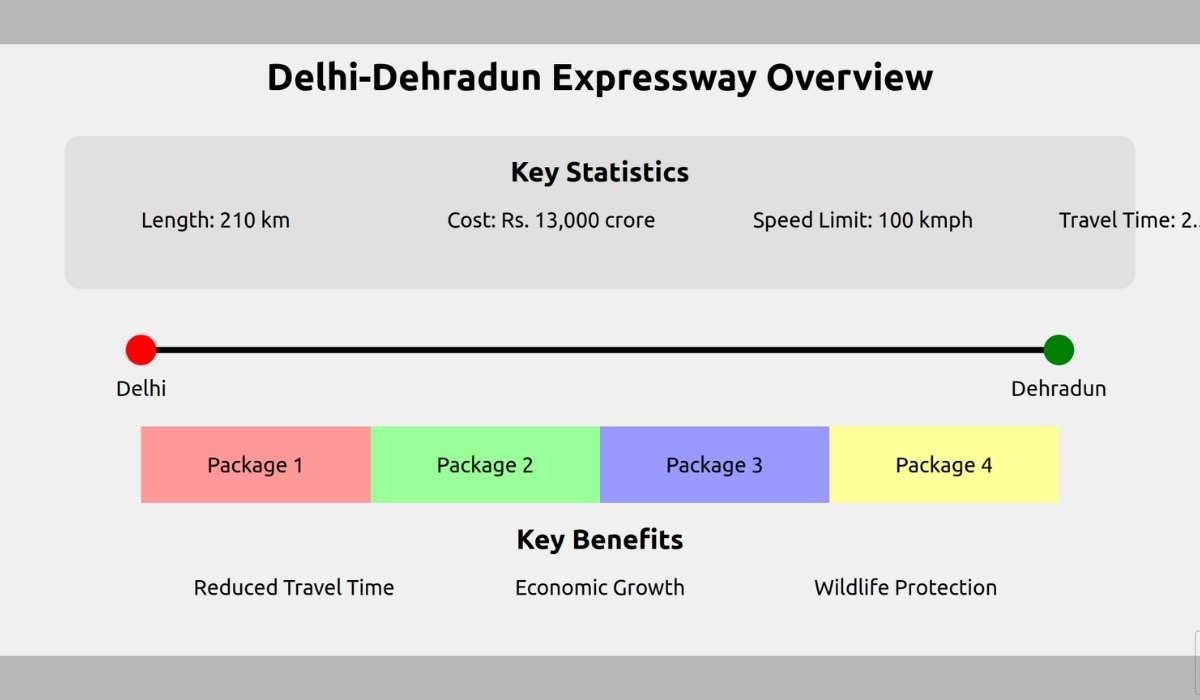Purchasing a home is a significant milestone and one of the most substantial investments an individual can make in India. However, the home buying process can be complex and overwhelming, especially for first-time buyers. From understanding your financial situation to navigating legal processes, there are numerous factors to consider. This is the Ultimate Home Buying Guide for Indian Consumers which aims to provide Indian consumers with valuable insights and practical advice to navigate the home buying journey successfully in 2023.
1. Understanding the Home Buying Process in India
The home buying process in India involves several key steps that require careful planning and execution. It’s essential to have a clear understanding of the journey from the outset to avoid potential pitfalls and make informed decisions.

Introduction to the Home Buying Journey
The home buying journey typically begins with researching the real estate market, determining your budget, and securing financing. It then progresses to finding the right property, conducting due diligence, negotiating the terms, and completing legal formalities. Finally, the process culminates with property possession and post-purchase considerations.
Key Steps Involved
- Research and market analysis
- Financing and budgeting
- Property search and evaluation
- Making an offer and negotiating
- Due diligence and legal processes
- Home inspection and closing the deal
- Moving and settling into the new home
Importance of Being an Informed Buyer
Navigating the home buying process can be complex, and being an informed buyer is crucial. Knowledge empowers you to make well-informed decisions, avoid common mistakes, and protect your interests throughout the journey.
2. Determining Your Budget and Financing Options
Establishing a realistic budget and securing appropriate financing are critical steps in the home buying process. These factors will determine the properties you can consider and the overall affordability of your home ownership journey.
Assessing Your Financial Situation
Before embarking on your home search, it’s essential to assess your financial situation thoroughly. Evaluate your income, existing debts, and savings to determine how much you can realistically allocate towards a down payment, monthly mortgage payments, and other associated costs. Seeking guidance from a financial advisor can be beneficial in creating a solid budget and understanding your borrowing capacity.
Unlock Your Dream Home Today!
Get personalized real estate insights delivered straight to your inbox.
Home Loan Eligibility and Documents Required
Most homebuyers in India rely on home loans to finance their property purchase. Lenders have specific eligibility criteria, including age, income, credit score, employment stability, and existing debt obligations. It’s crucial to familiarize yourself with these requirements and gather the necessary documentation, such as income proof, identity documents, and property details, to streamline the loan application process.
Comparing Interest Rates and Loan Tenures
Interest rates and loan tenures can significantly impact the overall cost of your home loan. Compare various options offered by banks like HDFC, housing finance companies, and other lenders to find the most suitable interest rate and loan tenure that aligns with your financial goals and repayment capacity.
Government Schemes and Tax Benefits for Homebuyers
The Indian government has introduced several housing schemes and tax benefits to make affordable Home Financing Options in India. These include initiatives like the Pradhan Mantri Awas Yojana (PMAY), Credit Linked Subsidy Scheme (CLSS), and tax deductions on home loan interest payments and principal repayments. Explore these schemes and benefits to determine if you qualify and how they can enhance your home buying affordability.
3. Choosing the Right Location
Location is a critical factor in the home buying process, as it can significantly impact your overall living experience and the property’s long-term value. When selecting a location, consider the following factors:
Proximity to Work, Schools, and Amenities:
Evaluate the proximity of potential locations to your workplace, children’s schools, healthcare facilities, shopping centers, and other amenities that are essential for your lifestyle. Striking the right balance between convenience and affordability can be challenging, but it’s crucial to prioritize your needs.
Analyzing Real Estate Market Trends and Property Appreciation
Researching real estate market trends and historical property appreciation rates in different areas can provide valuable insights. Areas with strong demand, infrastructure development, and a positive growth trajectory may offer better long-term investment potential.
Upcoming Infrastructure Developments and Their Impact
Stay informed about upcoming infrastructure projects, such as new highways, metro lines, or commercial developments, as these can positively or negatively impact the desirability and value of a location. Anticipating these changes can help you make an informed decision.
4. Evaluating Property Types and Designs
Once you’ve narrowed down your preferred location, it’s time to explore different property types and designs to find the perfect fit for your needs and preferences.
Understanding Different Property Types
In India, homebuyers have various property types to choose from, including apartments, villas, row houses, and plots. Each type has its unique advantages and considerations, such as maintenance requirements, privacy, and community living dynamics.
Assessing Floor Plans, Layouts, and Amenities
Carefully evaluate the floor plans, layouts, and amenities of potential properties to ensure they align with your lifestyle and spatial requirements. Consider factors like room sizes, natural light, ventilation, and shared amenities like parking, green spaces, and recreational facilities.
Balancing Needs vs. Wants in a Home
While it’s tempting to pursue your dream home with all the desired features, it’s essential to balance your needs with your budget. Prioritize your must-haves, such as the number of bedrooms, location, and structural integrity, and be willing to compromise on non-essential features to stay within your financial constraints.
5. Working with Real Estate Agents
Navigating the real estate market can be challenging, and many homebuyers choose to work with real estate agents to streamline the process and gain valuable insights.
Benefits of Hiring a Real Estate Agent
Real estate agents can provide numerous benefits, including access to a wide range of property listings, insider knowledge of local markets, and expertise in negotiating deals. They can also guide you through the legal and administrative processes, ensuring a smooth transaction.
How to Find Potential Agents
When selecting a real estate agent, consider factors such as their experience, reputation, local market knowledge, and communication skills. Ask for referrals from friends and family, and conduct thorough research to ensure you’re working with a reputable and trustworthy professional.
Understanding Agent Commissions and Fees
Real estate agents typically earn commissions based on a percentage of the property’s sale price. It’s essential to understand the fee structure and negotiate terms upfront to avoid any surprises or misunderstandings down the line.
6. Making an Offer and Negotiating
Once you’ve found the perfect property, it’s time to make an offer and negotiate the terms of the deal.
Tips for Making a Competitive Offer
To increase your chances of having your offer accepted, it’s crucial to research comparable property prices in the area and make a reasonable and competitive offer. Consider factors such as market conditions, property condition, and your financial situation to determine the appropriate offer price.
Negotiation Strategies for Pricing and Terms
Negotiation is a vital part of the home buying process. Develop negotiation strategies that consider pricing, terms, and conditions, such as the closing date, repairs or renovations, and inclusion of appliances or fixtures. Be prepared to counter-offer and compromise to reach a mutually agreeable deal.
Common Pitfalls to Avoid During Negotiations
During negotiations, it’s essential to maintain a professional and respectful demeanor. Avoid emotional decisions, unrealistic demands, or aggressive tactics, as these can jeopardize the deal. Always rely on factual data and seek guidance from your real estate agent or legal professional when necessary.
7. Property Documentation and Legal Processes
Once you’ve reached an agreement, it’s crucial to conduct thorough due diligence and navigate the legal processes to ensure a smooth and secure transaction.
Importance of Due Diligence and Property Verification
Due diligence is a critical step in the home buying process, where you verify the property’s legal status, ownership history, and any potential encumbrances or disputes. This process helps mitigate risks and protects your interests as a buyer.
Understanding Property Documents
Familiarize yourself with essential property documents, such as title deeds, approved plans, occupancy certificates, and no-objection certificates. These documents establish the property’s legal standing and ensure compliance with local regulations.
Hiring a Legal Professional for Guidance
While real estate agents can provide valuable guidance, it’s advisable to engage a legal professional, such as a property lawyer or conveyancer, to navigate the intricate legal processes and documentation involved in property transactions. They can review contracts, identify potential issues, and ensure your interests are protected.
8. Home Inspection and Closing the Deal
After completing the legal processes, it’s time to conduct a professional home inspection and finalize the deal.
Purpose and Importance of a Professional Home Inspection
A professional home inspection is crucial to assess the property’s condition, identify any structural or functional issues, and ensure compliance with building codes and regulations. This step can help you make an informed decision and potentially negotiate repairs or adjustments to the sale price.
Final Steps Before Property Possession
Before taking possession of the property, there are several final steps to complete. These may include final walkthroughs, transfer of utilities, and payment of outstanding fees or dues. Ensure you understand and fulfill all obligations to avoid any delays or complications.
Registration, Stamp Duty, and Other Closing Costs
In addition to the property’s purchase price, be prepared to pay closing costs, such as registration fees, stamp duty, and other applicable taxes or charges. These costs can vary depending on the location and property value, so factor them into your budget.
9. Post-Purchase Considerations
Once you’ve successfully closed the deal and taken possession of your new home, there are several post-purchase considerations to keep in mind.
Moving and Settling Into the New Home
Moving into a new home can be an exciting but daunting experience. Plan ahead for the logistics of moving, including hiring professional movers, transferring utilities, and updating your address with relevant authorities and service providers.
Home Insurance and Maintenance Tips
Protecting your investment through comprehensive home insurance is essential. Explore various insurance options and coverage levels to safeguard your property against potential risks. Additionally, develop a maintenance plan to ensure your home remains in good condition and retains its value over time.
Creating a Long-Term Investment Plan
For many homebuyers, their property is a significant long-term investment. Consider strategies to maximize the value of your investment, such as renovations, landscaping, or exploring rental opportunities. Work with financial advisors to develop a plan that aligns with your goals and financial situation.
10. Top Mistakes to Avoid When Buying a Home
While navigating the home buying process, it’s essential to be aware of common pitfalls and mistakes to avoid.
Common Pitfalls and Mistakes Made by Homebuyers
Some common mistakes made by homebuyers include failing to research the market thoroughly, overlooking hidden costs, neglecting due diligence, and making emotional decisions driven by fear or urgency. Additionally, underestimating the importance of legal guidance and professional inspections can lead to costly consequences.
Lessons Learned from Real-Life Case Studies
Real-life case studies can provide valuable lessons and insights into the potential challenges and pitfalls of the home buying process. By learning from others’ experiences, you can better prepare and make informed decisions to mitigate risks.
Expert Advice on Navigating the Home Buying Process Smoothly
Seek guidance from experts, such as real estate agents, lawyers, financial advisors, and experienced homebuyers, to navigate the home buying process smoothly. Their advice and insights can help you avoid common mistakes, manage expectations, and make well-informed decisions throughout the journey.
Conclusion
Purchasing a home is a significant investment and a life-changing decision. By following the guidelines outlined in this comprehensive guide, you’ll be better equipped to navigate the home buying process in India with confidence. Remember, seeking professional advice from real estate agents, legal experts, and financial advisors can be invaluable throughout the journey. With proper planning, research, and guidance, you can make informed decisions and find your dream home while minimizing potential risks and pitfalls.
Home Buying Process in India: Answering Your FAQs
What are the key steps in the Indian home buying process?
The key steps involved in the home buying journey in India include research and market analysis, financing and budgeting, property search and evaluation, making an offer and negotiating, due diligence and legal processes, home inspection and closing the deal, and moving and settling into the new home.
Why is budgeting and financing important?
Determining your budget and exploring financing options early on is crucial as it will define the properties you can consider and the overall affordability of home ownership. Establishing a realistic budget and securing appropriate financing are essential for a successful home buying experience.
How do I choose the right location for my new home?
When selecting a location, consider factors such as proximity to work, schools, and amenities, real estate market trends and property appreciation potential, and upcoming infrastructure developments that may impact the area’s desirability and value.
What should I look for when evaluating property types and designs?
Assess factors like floor plans, layouts, amenities, and whether the property aligns with your lifestyle and spatial requirements. Balance your needs with your budget, and be open to compromising on non-essential features to stay within your financial constraints.
Why work with a real estate agent?
Real estate agents offer numerous benefits, including access to a wide range of property listings, insider knowledge of local markets, expertise in negotiating deals, and guidance through legal and administrative processes, ensuring a smooth transaction.
How can I make a competitive offer and negotiate effectively?
Research comparable property prices, make a reasonable and competitive offer, develop negotiation strategies, and be prepared to counter-offer and compromise. Avoid emotional decisions or unrealistic demands, and rely on factual data and professional guidance.
Why is due diligence and property verification important?
Due diligence helps verify the property’s legal status, ownership history, and any potential encumbrances or disputes, mitigating risks and protecting your interests as a buyer. It’s a critical step in ensuring a secure transaction.
What is the purpose of a professional home inspection?
A professional home inspection assesses the property’s condition, identifies any structural or functional issues, and ensures compliance with building codes and regulations. This step helps you make an informed decision and potentially negotiate repairs or adjustments to the sale price.
What are common pitfalls to avoid when buying a home?
Common mistakes include failing to research the market thoroughly, overlooking hidden costs, neglecting due diligence, making emotional decisions, underestimating the importance of legal guidance, and skipping professional inspections.
What are some post-purchase considerations?
Post-purchase considerations include planning for the logistics of moving, obtaining comprehensive home insurance, developing a maintenance plan to maintain your property’s value, and creating a long-term investment strategy aligned with your financial goals.
Are you ready to embark on your home buying journey in India? Our team of real estate experts is here to guide you every step of the way. Contact us today to schedule a consultation and take the first step towards finding your perfect home.
The key steps include research and market analysis, financing and budgeting, property search and evaluation, making an offer and negotiating, due diligence and legal processes, home inspection and closing the deal, and finally moving and settling into the new home.
Budgeting and financing are essential as they define the properties you can consider and the overall affordability of home ownership. A realistic budget and appropriate financing are critical for a successful home buying experience.
Consider factors such as proximity to work, schools, and amenities, analyze real estate market trends, property appreciation potential, and stay informed about upcoming infrastructure developments that could impact the area.
Evaluate floor plans, layouts, and amenities to ensure they align with your lifestyle and spatial requirements. Balance your needs with your budget and be willing to compromise on non-essential features.
Real estate agents provide access to a broad range of property listings, local market knowledge, negotiating expertise, and guidance through legal and administrative processes, ensuring a smoother transaction.
Research comparable property prices, make a reasonable offer, develop negotiation strategies, and be prepared to counter-offer. Avoid emotional decisions and rely on factual data and professional guidance.
Due diligence ensures the property's legal status, ownership history, and identifies any potential encumbrances or disputes, mitigating risks and protecting your interests during the transaction.
A professional home inspection assesses the property's condition, identifies structural or functional issues, and ensures compliance with building codes, helping you make informed decisions and negotiate repairs.
Common mistakes include failing to research the market, overlooking hidden costs, neglecting due diligence, making emotional decisions, and underestimating the importance of legal guidance and professional inspections.
Post-purchase considerations include planning the logistics of moving, obtaining home insurance, developing a maintenance plan, and creating a long-term investment strategy aligned with your financial goals.
The key steps involved in the home buying journey in India include research and market analysis, financing and budgeting, property search and evaluation, making an offer and negotiating, due diligence and legal processes, home inspection and closing the deal, and moving and settling into the new home.
Determining your budget and exploring financing options early on is crucial as it will define the properties you can consider and the overall affordability of home ownership. Establishing a realistic budget and securing appropriate financing are essential for a successful home buying experience.
When selecting a location, consider factors such as proximity to work, schools, and amenities, real estate market trends and property appreciation potential, and upcoming infrastructure developments that may impact the area's desirability and value.
Assess factors like floor plans, layouts, amenities, and whether the property aligns with your lifestyle and spatial requirements. Balance your needs with your budget, and be open to compromising on non-essential features to stay within your financial constraints.
Real estate agents offer numerous benefits, including access to a wide range of property listings, insider knowledge of local markets, expertise in negotiating deals, and guidance through legal and administrative processes, ensuring a smooth transaction.
Research comparable property prices, make a reasonable and competitive offer, develop negotiation strategies, and be prepared to counter-offer and compromise. Avoid emotional decisions or unrealistic demands, and rely on factual data and professional guidance.
Due diligence helps verify the property's legal status, ownership history, and any potential encumbrances or disputes, mitigating risks and protecting your interests as a buyer. It's a critical step in ensuring a secure transaction.
A professional home inspection assesses the property's condition, identifies any structural or functional issues, and ensures compliance with building codes and regulations. This step helps you make an informed decision and potentially negotiate repairs or adjustments to the sale price.
Common mistakes include failing to research the market thoroughly, overlooking hidden costs, neglecting due diligence, making emotional decisions, underestimating the importance of legal guidance, and skipping professional inspections.
Post-purchase considerations include planning for the logistics of moving, obtaining comprehensive home insurance, developing a maintenance plan to maintain your property's value, and creating a long-term investment strategy aligned with your financial goals.
The key steps involved in the home buying journey in India include research and market analysis, financing and budgeting, property search and evaluation, making an offer and negotiating, due diligence and legal processes, home inspection and closing the deal, and moving and settling into the new home.
Determining your budget and exploring financing options early on is crucial as it defines the properties you can consider and the overall affordability of home ownership. Establishing a realistic budget and securing appropriate financing are essential for a successful home buying experience.
When selecting a location, consider factors such as proximity to work, schools, and amenities, real estate market trends and property appreciation potential, and upcoming infrastructure developments that may impact the area's desirability and value.
Assess factors like floor plans, layouts, amenities, and whether the property aligns with your lifestyle and spatial requirements. Balance your needs with your budget, and be open to compromising on non-essential features to stay within your financial constraints.
Real estate agents offer numerous benefits, including access to a wide range of property listings, insider knowledge of local markets, expertise in negotiating deals, and guidance through legal and administrative processes, ensuring a smooth transaction.
Research comparable property prices, make a reasonable and competitive offer, develop negotiation strategies, and be prepared to counter-offer and compromise. Avoid emotional decisions or unrealistic demands, and rely on factual data and professional guidance.
Due diligence helps verify the property's legal status, ownership history, and any potential encumbrances or disputes, mitigating risks and protecting your interests as a buyer. It's a critical step in ensuring a secure transaction.
A professional home inspection assesses the property's condition, identifies any structural or functional issues, and ensures compliance with building codes and regulations. This step helps you make an informed decision and potentially negotiate repairs or adjustments to the sale price.
Common mistakes include failing to research the market thoroughly, overlooking hidden costs, neglecting due diligence, making emotional decisions, underestimating the importance of legal guidance, and skipping professional inspections.
Post-purchase considerations include planning for the logistics of moving, obtaining comprehensive home insurance, developing a maintenance plan to maintain your property's value, and creating a long-term investment strategy aligned with your financial goals.
DISCLAIMER
The information provided on this website is for general informational purposes only. While we strive to keep the content up-to-date and accurate, we make no representations or warranties of any kind, express or implied, about the completeness, accuracy, reliability, suitability, or availability of the information, products, services, or related graphics contained on this website.
In no event will we be liable for any loss or damage including without limitation, indirect or consequential loss or damage, or any loss or damage whatsoever arising from loss of data or profits arising out of, or in connection with, the use of this website.
Real Estate Investment Risks
Real estate investments involve significant risks and market volatility. Property values, rental rates, and market conditions can fluctuate. Past performance is not indicative of future results.
Before Making Real Estate Decisions
Before making any real estate decision, we strongly advise you to:
- Conduct thorough due diligence
- Consult with qualified legal, financial, and real estate professionals
- Carefully review all relevant documents and contracts
- Consider your personal financial situation and investment goals
This website does not provide legal, financial, or investment advice. All content is for informational purposes only and should not be construed as professional advice or recommendations.
By using this website, you acknowledge and agree to these terms. We reserve the right to modify this disclaimer at any time without notice.







